Diesel prices fluctuate, and for farmers to increase profitability, they need to capitalise on these dips in pricing. At most, Australian farmers are familiar with bulking up on diesel for their daily operations and preparing for their busy times.
When the coronavirus pandemic spread out globally, businesses were significantly affected by it. On the other hand, the agriculture industry wasn’t as impacted as it provides the essential goods people need such as fresh produce.
The farming operations are business as usual, albeit within government restrictions due to Covid19, for example, the wearing of masks, distancing if applicable and other safety protocols.
Unpredictability with diesel prices
The price of diesel is always unpredictable. It sometimes has its highs and lows, making it challenging for farmers to come up with a strategic plan to save on fuel properly.
At present, the price of diesel fuel continues with unexpected price changes. A news report from ABC stated that Perth metropolitan residents could have access to cheaper fuel prices.
The cheaper fuel prices resulted in Saudi Arabia and Russia's price war, the leading exporters of crude oil globally - this in turn influenced the low demand of oil supply globally. Countries shutting down their borders is also a significant factor in the fluctuating diesel prices.
However, that is not the case for people in the bush. They are charged more for the transport and bowser costs to reach their areas, leaving them unaffected by the savings metropolitan residents have experienced with fuel price changes.
Now that the pandemic is being handled well, fuel prices are getting back on their track, with high demand worldwide soon picking up to its original state.
In cases like this, you need to develop quick solutions to maximise your benefit and taking advantage of low diesel prices when they come quickly. The solution? Ensure you have good quality and sufficient diesel storage tanks.
Check on your diesel storage tanks
Any experienced farmer knows that storing bulk diesel is not as easy as it seems to be. Finding a reliable fuel supplier as well as the perfect day or time to store up your storage tanks adds up to your concerns.
Now is the perfect time for you to think ahead of time should these unexpected price drops happen in the future. Our country solely relies on fuel supply from our neighbouring countries.
Encountering scenarios with fuel shortages shouldn't be another worry for you to carry if you plan and prepare accordingly.
To keep your storage tanks and diesel supply in check, the following guidelines will help you to make informed decision on your fuel storing solution:
Related Read:
Diesel Storage: 7 Helpful Reminders and Tips for Purchasing Diesel
Diesel storage tanks guidelines:
1. Do your storage tanks still work the same as before?
You need to check your storage tanks' quality, especially if they are made from steel and not stored properly. Steel tanks are prone to rust and condensation, causing risk to a diesel spillage.
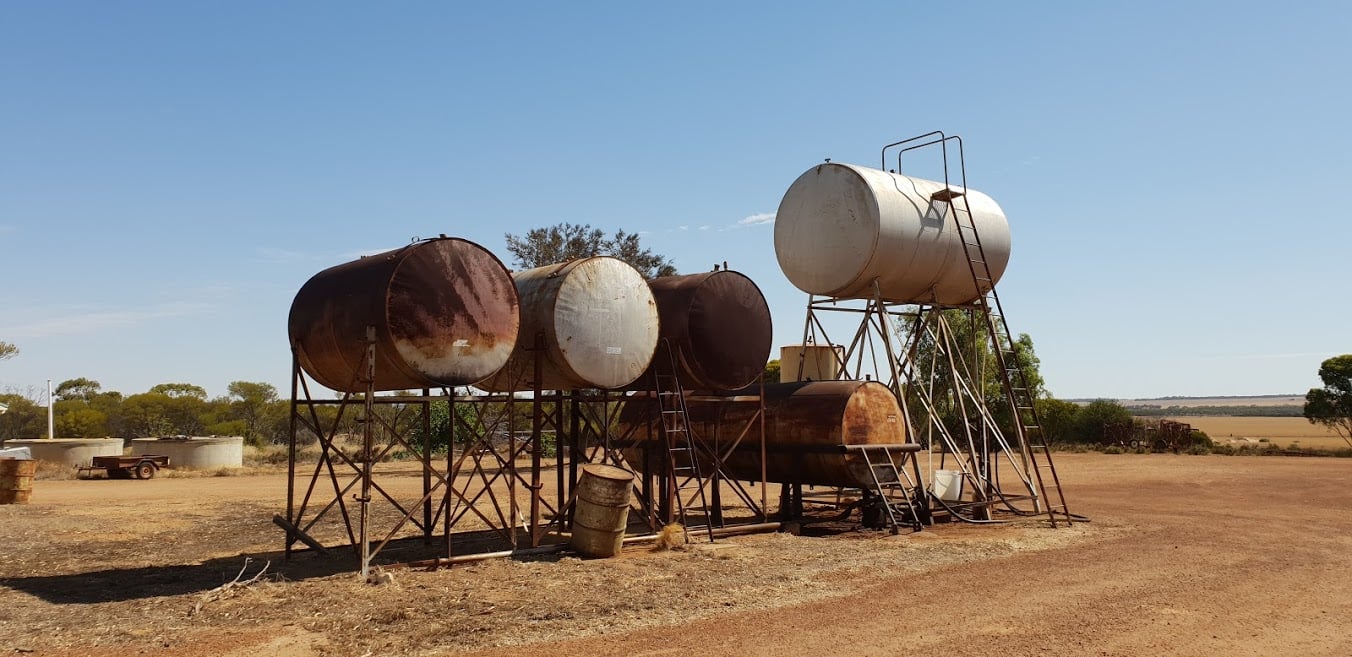 Steel Diesel Storage Tanks
Steel Diesel Storage Tanks
If you think that you need to upgrade your storage tanks, switching to a Coerco polyethylene diesel storage tank might be a good option. Our tanks are made of Alkutuff polyethylene, making our poly tanks compatible with diesel.
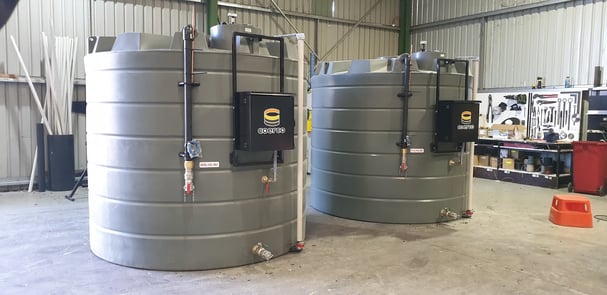
Coerco Polyethene Diesel Storage Tanks
2. Are your storage tanks durable enough to last the seeding and harvesting times?
Seeding and harvesting times are the primary reasons why you are storing diesel. Your tractors and other farming equipment solely rely on diesel in supporting you with your crops.
Changes in your farming routine and crops may also affect the litres of diesel needed during your seeding and harvesting times. You do not want to experience an event where you are forced into buying high-priced diesel if you haven't calculated your litre usage.
Adding new storage tanks can probably save you from this type of scenario and be fully ready during your most busy times.
3. How many litres of diesel are appropriate to store for my farm?
We know that storing cheap diesel when the market goes down should be your priority. However, beware that excess diesel can lead you to additional expenses.
These other expenses can come from contaminated tanks, diesel spillage, misuse of diesel fuel and even, fuel theft. So, take note of the average litres of fuel you consume during your daily operations.
Sometimes, missing this little detail may lead you to spend unnecessarily even if you thought you saved up on cheap diesel.
4. Do I have an adequate contingency and budget plan when it comes to diesel storage?
As fuel prices are not constant. It continuously varies depending on what is happening in the global market and the demand of its consumers. You can help yourself by monitoring the market and developing strategies that can benefit you and your farm.
Any savings are still savings, and the fact that you were able to save up on some expenses can be your little wins with proper planning.
Learn More About Diesel Storage Tanks:
10 Frequently Asked Questions on Diesel Storage and Cartage Tanks
Best time to upgrade your storage tanks
The best time to upgrade your storage tanks is anytime you think it's applicable. Diesel storage tanks can last for a long time if maintained properly, but you need to remember that you cannot benefit from their total capacity if they are not regularly maintained.
Don't hesitate to ask assistance from a professional if your tank's performance has been bothering you. It is a huge plus too if you are hands-on with your daily operations to keep track of the changes happening on your farm.
To recap, lower fuel prices can provide huge savings if planned for accordingly. Choosing the correct time to upgrade your diesel storage can also benefit you and your farm in the long run.
We hope we have provided you some insightful ideas.



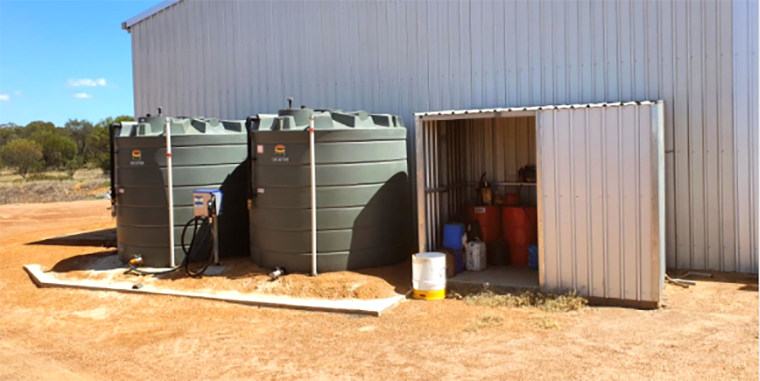


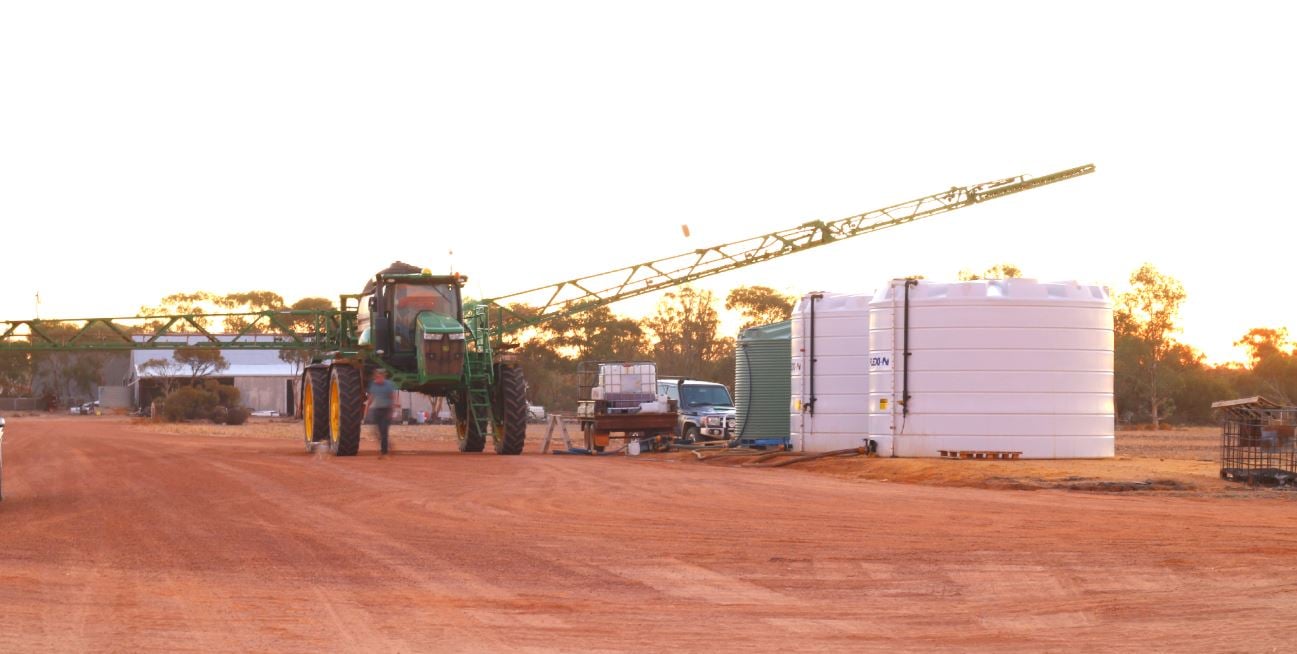
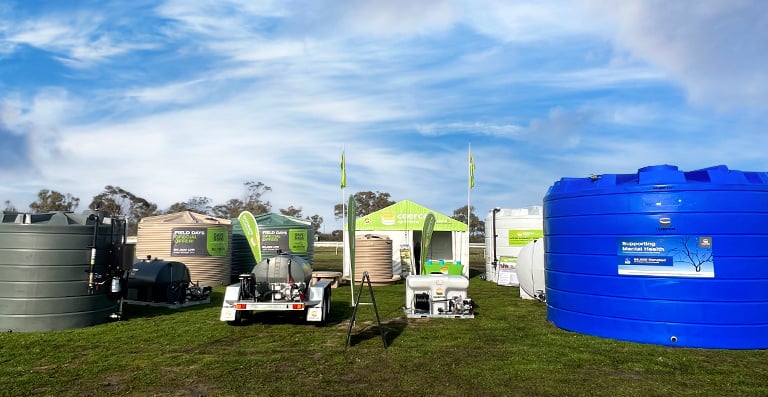
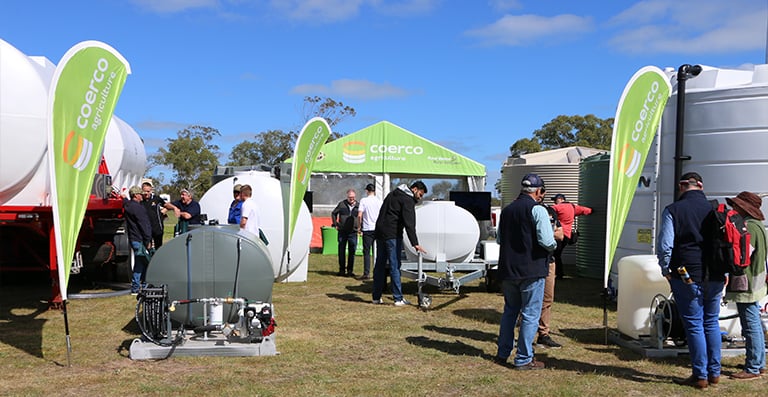
What do you think about this post?
Comments